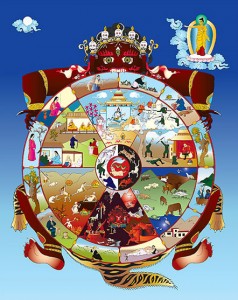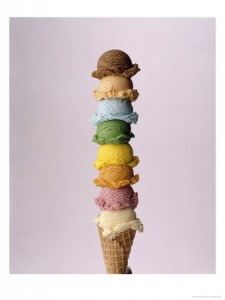
Excerpt from a teaching by Jetsunma Ahkon Lhamo from the Vow of Love series
From the first day that I began teaching until the last day that I ever have the opportunity to teach, I will invariably speak of compassion. If compassion were ice cream, by the time you finish with me you will have tasted every flavor at least 475 times. So, now we will talk about another flavor of compassion.
Previously, we have discussed why compassion is necessary. Then we spoke about how to begin to apply that compassion. We talked about various ways in which one could be motivated by compassion, as well as thoughts that you might have found moving or encouraging and that were geared to deepen and soften your mind. These are very important. One of the greatest, most precious jewels that you will hopefully attain in traveling the Buddhist path, or any spiritual path, is to have your mind softened and deepened.
There is an expression in one of our prayers, that one’s mind becomes ‘hard as horn.’ The minute I first read that particular phrase, it touched me deeply. Every time I have thought about it, it has meant more and more to me. One’s mind becomes hard as horn because of the discrimination, the conceptualization that is involved with the idea of ego, because of the pride and arrogance that arise from our belief in self-nature as being inherently real. We have established in our minds all of the clothing, the dogma, the discrimination of this idea of self as being real. These things become rigid in our minds, and our minds are no longer gentle.
The moment you decide in some subconscious way you have an ego, that you are a self, you have to start gathering the constructs of self-identity around you. You have to determine where self ends and other begins. In order to do that your mind has to be filled with conceptualization. In order to be a self you have to survive as a self. In order to maintain this conceptualization that makes survival possible, your mind has to become rigid. So if I say to you that your mind is rigid, you shouldn’t think I have insulted you. I am talking about a condition all sentient beings have, and it is a condition that is the cause of a great deal of suffering.
When I say that all sentient beings are suffering, I don’t wish it to be a real downer for you. That is not the point. Realizing all sentient beings are suffering is meant to soften your mind, because to realize all sentient beings are suffering, you have to be willing to examine phenomena and to examine yourself in a deep way, in a way that you don’t normally do. Therefore, you have to challenge your concepts. Why is that? Because naturally, and without any teaching or any encouragement, you will try to convince yourself that you are happy.
You may do this in much the same way that a person who is hungry and unable to eat will do something to take his mind off his hunger. Let’s say its 10 o’clock. You’re on the job, you’re famished, and you know you can’t get off for lunch until 12 o’clock. You are going to try to think of something else. You’re going to try to keep your mind busy, or try not to focus on your hunger. In much the same way, if you are suffering and you don’t have the technology to remove from your mind the causes of this suffering, you are going to try to convince yourself that you are okay. You are going to put a band-aid on it, and in order for you to do so, your mind has to become more hardened.
It is useful to really look around at sentient beings and see they are suffering. It is also useful to look at yourself. This is not meant to make you depressed or sad. It is meant to give you what it takes to go to the next step, which is to try to determine for yourself the way to remove the causes of suffering.
Even though there are times when hunger is not comfortable, when you would rather not think about it, there are also times when hunger is useful in that it keeps you alive. In the same way, while it may be uncomfortable for you to think that all sentient beings are suffering, it is actually quite useful for you to realize that. It is this realization that will give you the foundation and the ability to turn your mind in such a way that you have to seek out the causes of suffering, and how you can remove them from your mind.
It is not useful in any long-term way to try to convince yourself, by putting a band-aid on an ulcer, that everything is okay, because you still have to face the same things that you’ve always had to face. Nothing has changed. You still have to face old age, sickness and death. Neither does it help you to be helpful to other sentient beings. Look at the animal realm. Go to India and see how the oxen are beaten and tied up in order to be worked. They are worked all of their lives. That is suffering. Look at all the different ways that other creatures suffer just out of ignorance, because they have no way to help themselves.
Once you have determined suffering does exist, there is no need to dwell on it in a morbid way. Rather, you should think, “This is how it is. Now I have to realize that there is, in fact, a cure, there is a way to deal with this.” It is not useful to dwell on suffering without also accepting the antidote. In other words, if you just think about hunger all the time, and you don’t eat, that is stupid. When hunger is no longer useful to you, it is simply suffering. You should use your awareness of suffering to prod you to seek and practice the antidote to suffering. Use your awareness; it is your tool.
© Jetsunma Ahkon Lhamo
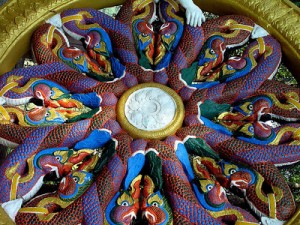
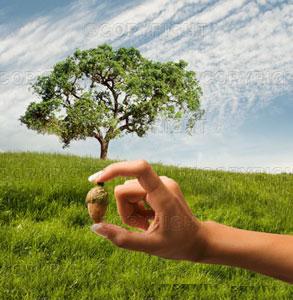


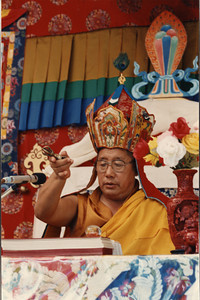


![art-fom-bs[1]](https://www.tibetanbuddhistaltar.org/wp-content/uploads/2010/08/art-fom-bs1-199x300.jpg)
